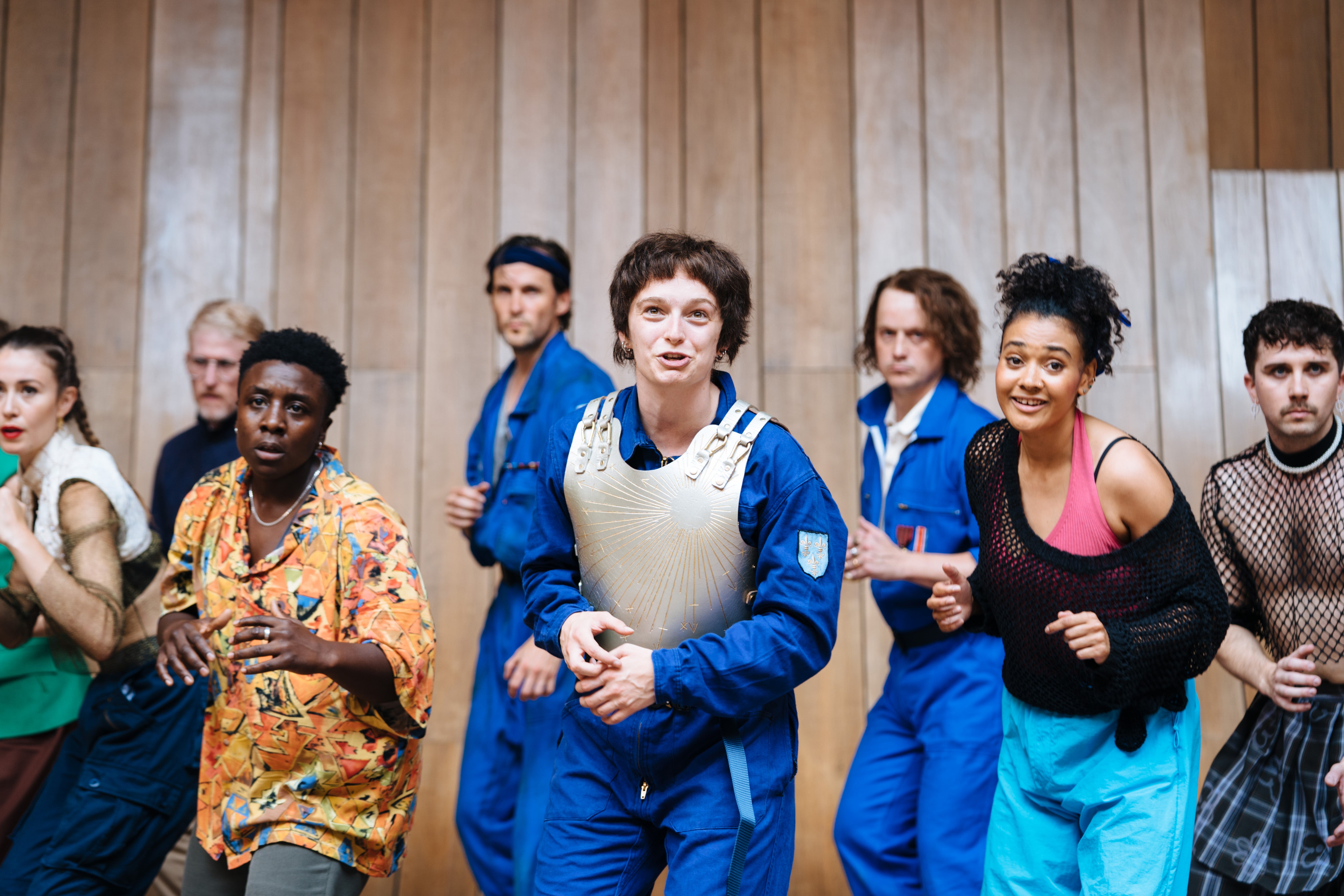
“There’s nothing wrong with being a girl… except if you’re not,” says Isobel Thom’s Joan of Arc. It’s a blazing statement to those who condemned the Globe’s I, Joan – in which the French martyr is non-binary – as misogynistic. In Charlie Josephine’s script, Joan (who uses they/them pronouns) makes nuanced, incredibly complex points about gender and the way the so-called “trans debate” has pitted trans and cis women against each other. (Men, we’re told, are the real enemy anyway.) But let’s get it clear: this is no gender studies lecture, but a funny and fierce work of theatre. Think the words “non-binary Joan of Arc” pissed off Daily Mail readers? They ain’t seen nothing yet.
Joan greets us and welcomes us into 15th century France, but not the one we know. King-to-be Charles (a joyous Jolyon Coy) is a petulant, foot-stamping, tennis white-wearing brat, bolstered by advisors who agree with everything he says. Only the low-born Thomas (Adam Gillan) offers him sound advice. Then they hear word that a girl (as they believe Joan to be) is amassing followers by claiming to have been sent from God to lead France in the war against England.
Obviously, his advisors are sceptical. The men suggest Joan must be a witch, chasing them around and comically prodding at their face. Joan is baffled but excited, a nervous, tingling energy threatening to burst from within them. When people hear Joan speak, the supremely talented ensemble convulse in anticipation too. Joan’s army may be kitted out like an Urban Outfitters shop window, but they fight in powerful, united dance, throwing and pushing themselves against Naomi Kuyck-Cohen’s ramp of a set.
In I, Joan, gender is explored both directly and with more subtlety. Initially, our hero is only referred to as a woman, a girl. Joan never asks for their pronouns to be changed, but it’s always clear that words like “woman” and the dresses pushed on them are the cause of real turmoil. These conversations are woven into the story too. Thomas tries to keep Joan level-headed, imploring they “give people time to catch up”. Later, he screams at them in hot-faced anger that “not all of us can have the luxury of revolution”.

The combination of Thom’s charm and energy and Josephine’s script keep the play from feeling preachy. They lean into the things that annoyed the sceptics (who, let’s not forget, hadn’t seen the play), the ensemble mock-gasping every time the God is referred to as a “she”. The only time the script loses me is in one of Joan’s final monologues, where Twitter and bathrooms are mentioned. After so much nuance, it’s a step too obvious and takes me out of the show’s world. But as the heavens open and rain falls for Joan’s final speech, it’s hard not to be won back round. “F*** your historically accurate,” Joan shouts. The hollers that respond are of an audience profoundly moved, seeing themselves on stage for the first time.
‘I, Joan’ runs at Shakespeare’s Globe until 22 October







